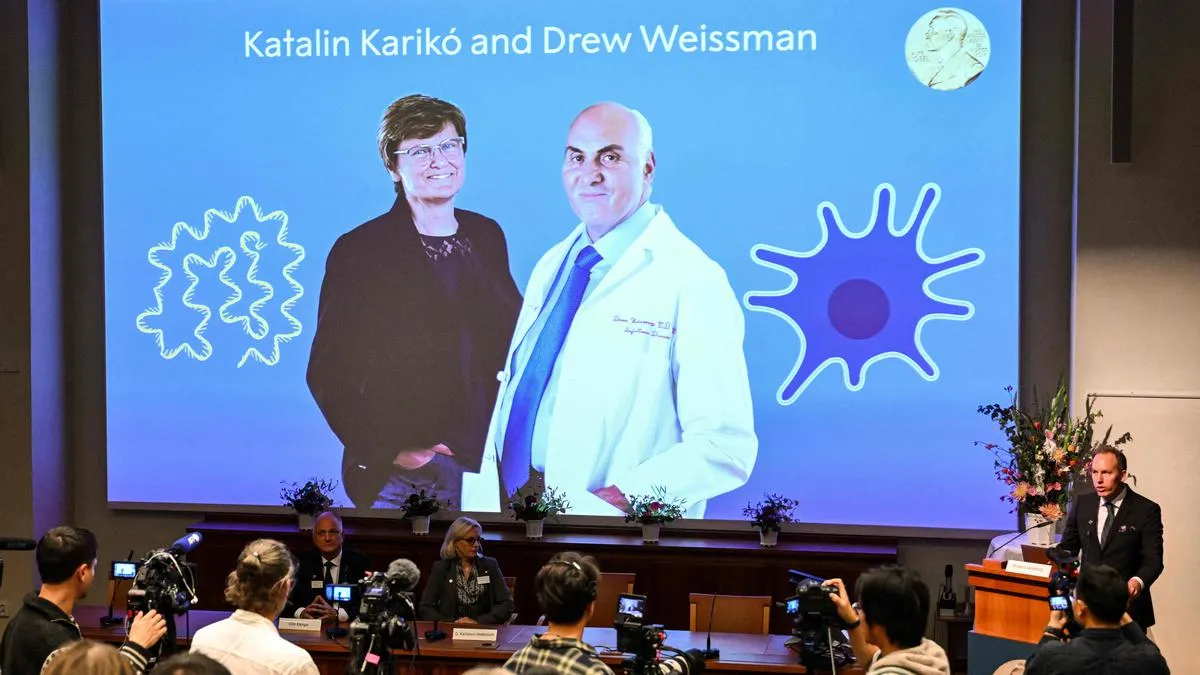
The 2023 Nobel Prize in Medicine goes to Katalin Kariko and Drew Weissman for the Covid mRNA vaccine
The Nobel Prize in Physiology or Medicine 2023
Dr. Karikó and Weissman received the Nobel Prize for “discoveries related to nucleoside base modifications that enabled the development of effective mRNA vaccines against COVID-19.”
The 2023 Nobel Prize in Physiology or Medicine has been awarded to Katalin Kariko and Drew Weissman for their discoveries regarding the modification of nucleoside bases that enabled the development of an effective mRNA vaccine against Covid-19.
“With their groundbreaking discoveries, which have fundamentally transformed our understanding of how mRNA interacts with our immune system, the laureates have contributed thanks to the unprecedented speed of vaccine development during one of the greatest human health threats of modern times.” statement. his announcement.
This prestigious award is presented annually by the Nobel Council of 50 professors at the Karolinska Institute, recognizing scientists who have made significant contributions to the field of medicine for the benefit of humanity.
Katalin Karik, born in 1955 in Szolnok, is a professor at the University of Szeged and an assistant professor at the Perelman School of Medicine at the University of Pennsylvania. Meanwhile, Drew Weissman is the Roberts Family Professor of Vaccine Research and director of the Penn RNA Innovation Institute.
To date, 113 Nobel Prizes in physiology or medicine have been awarded since 1901, including 12 to women. The youngest winner of all time in the field of medicine is Frederick G. Banting, recipient of the 1923 Prize in Medicine for discovering insulin at the age of 32.
If we look back at last year, the 2022 Nobel Prize in Physiology or Medicine was awarded to Swedish geneticist Svante Paabo. Paabo, who directs the Max Planck Institute for Evolutionary Anthropology in Leipzig, Germany, was recognized for his groundbreaking work in extracting and analyzing DNA from ancient bones, specifically those of Neanderthals.
His research has significantly advanced our understanding of extinct hominids and human evolution. The announcement of the Nobel Prize is a highly anticipated event every October, with committee meetings in Stockholm and Oslo to announce the winners. Since its establishment in 1901, the Nobel Prize has been awarded to scientists who have made the most important discoveries for the benefit of humanity.
